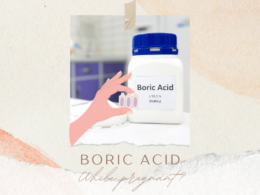Fish Eggs – Are They Healthy?
First, are fish eggs really healthy? Generally speaking, fish eggs are a nutritious and healthy food. They are high in protein and omega-3 fatty acids, and they also contain vitamins and minerals that are essential for human health. Fish eggs are often consumed as caviar, but they can also be cooked and eaten in other ways. It seems that fish eggs have a lot of potential health benefits, but can you eat fish eggs while pregnant?
Can You Eat Fish Eggs While Pregnant? Potential Risks
As a future mom, you are probably wondering, “Can you eat fish eggs while pregnant?”. After all, you want to make sure that you and your baby are healthy. And the answer to your question may not be obvious.
While fish eggs are not inherently dangerous for pregnant women to eat, there are several factors to consider before indulging. For example, fish eggs can contain mercury. Mercury can be dangerous for both the woman and her baby. It can lead to developmental problems. Therefore, it is important to be cautious when eating fish eggs during pregnancy.
Another thing to consider is the way the fish eggs are prepared. If caviar and other fish eggs are pasteurized and stored in a refrigerator, they are not harmful to a pregnant woman. Raw or unpasteurized fish roe, fish eggs, and caviar all have the potential to be contaminated with listeria and other germs, so pregnant women should avoid them.
Finally, it is important to be aware that some fish can contain toxins that can be harmful to pregnant women and their babies. These toxins can include mercury, dioxins, and PCBs.
So, can you eat fish eggs while pregnant? The answer is yes, but you should be cautious about the type of fish eggs you eat and how they are prepared. If you have any concerns, talk to your doctor or midwife.
Similar Posts:
- I Ate Sushi While Pregnant! What Can Happen, and What Should I Do?
- Can You Eat Smoked Salmon While Pregnant – Risks of Smoked Salmon & Lox
- Can You Eat Ramen While Pregnant? Rating Its Healthiness and Safety
- Can Toddlers Eat Sushi? Is Raw Fish Safe for Kids?
- Can You Eat Egg Drop Soup While Pregnant? Here’s What You Might Not Know

















